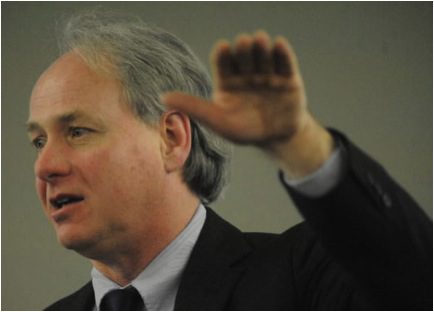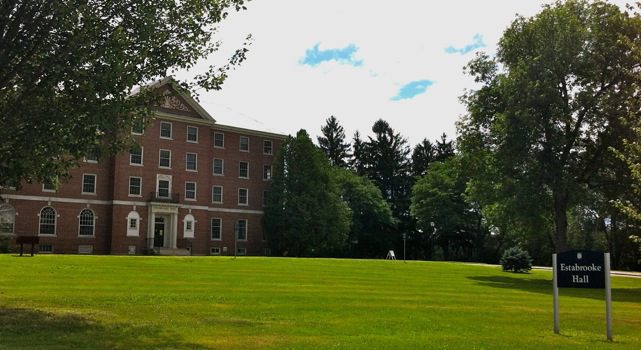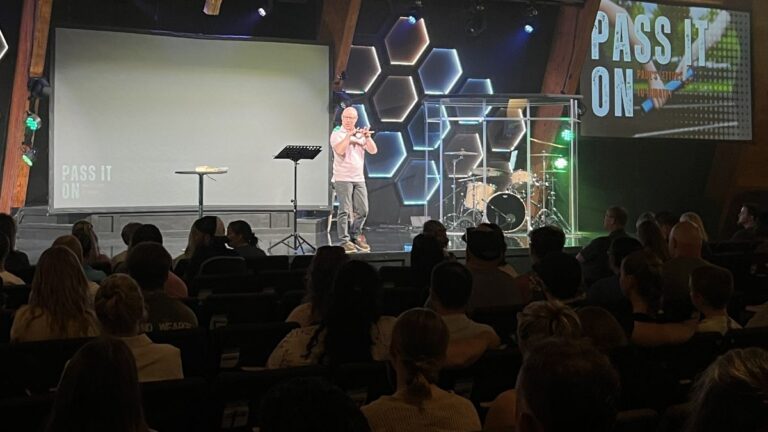This September, among the new students attending the University of Maine’s orientation in Orono will be two students from China and one each from India, Vietnam and Bangladesh.
That the students are from abroad is not new – the University of Maine had 341 degree-seeking, international students last year. But the way they got here is.
They didn’t come here on their own. They were recruited in their home countries by agents paid on a per-head basis by the public university.
The University of Maine System will use the controversial method to bring more foreign students to both Orono and the University of Southern Maine over the next five years.
The sensitive nature of the commission-based recruiting is best illustrated by the fact that it can be illegal if done within the U.S. The federal government is currently suing a for-profit education company for fraudulently recruiting students to its colleges. And that company and the company hired by the University of Maine System (UMS) – called Study Group – are owned by the same parent company.
University administrators said their decision is well thought through.
“We chose Study Group for several reasons,” said Janet Waldron, senior vice president for administration and finance at the University of Maine. “We liked their holistic approach to working with students and we were looking for a partner that had a commitment to high-quality student success.”
UMS Chancellor James Page said increasing the number of international students at Maine’s flagship university will improve diversity and create a new source of tuition revenue.

“Engaging foreign students builds valuable relationships between them and our students, campuses, businesses, and communities that are increasingly important in a global economy,” he wrote in a memo to a board of trustees committee.
He also said UMS needs another source of students and tuition because of Maine’s declining high school student population and the inclination of many of Maine’s top seniors to go out of state or to private colleges. That lost tuition needs to be made up and UMS needs outside help to do that.
The international education market, he said, is “very complicated and it’s highly competitive. We don’t have the resources to go after many, many countries.”
A plan provided to the Maine Center for Public Interest Reporting by UMS states that the two campuses with Study Group-recruited students will bring in about $20 million in tuition from foreign students over five years, plus room and board.
But that won’t come without a cost. Study Group will get 80 percent of each student’s first-year tuition (about $20,000) and five percent in subsequent years ($1,250 per student). Study Group covers not only the expense of recruiting the students but also of providing them with English and other preparatory classes and guidance.
The universities, though, have another expense of their own: a $1.5 million bill to renovate buildings where the foreign students will receive the Study Group training. UMS will spend $700,00 to renovate Estabrooke Hall at the University of Maine and $800,000 to renovate Upton-Hastings Hall at the University of Southern Maine in Gorham. They are expected to be completed this fall.
Study Group is a global recruiting machine that has already kicked into gear for the University of Maine. A contract was signed in March and now the company will use its network of 2,500 independent recruiters, known in the industry as agents, to represent the University of Maine at college fairs and high schools and in counseling sessions with students and their families in Asia, Latin America, the Middle East, Europe, Africa, Australia and New Zealand.
The students starting this fall are just a harbinger. By 2016, the company is expected to be recruiting 300 students per year into the University of Maine and 100 per year into the University of Southern Maine, according to materials provided to the system’s board of trustees.
Study Group employees will visit the University of Maine in the fall and return to their offices around the world equipped with promotional material. One sample packet states: “The town of Orono is an ideal campus setting on the banks of the Stillwater River, 15 minutes from Maine’s third largest city, Bangor.”
With Study Group, the UMS is trying to catch a wave that colleges across the country are already riding. International students, mainly from Asia, want American degrees and will pay full freight to get them. In response, colleges without the cachet of a recognizable name or a top ranking from college rating services are hiring outside companies to promote their schools abroad.
Some universities work directly with agents. Others contract with organizations known in the industry as pathways programs that offer the services of a broad network of agents as well as a program to help the students matriculate into the university.
Study Group is a pathway program. It was formed in the United Kingdom in 1994 to help universities there recruit foreign students. It has since gone international, signing contracts with universities in the United States, Australia, Canada, New Zealand and the Netherlands.
In the United States, Study Group works with James Madison University and Long Island University and has new programs starting at the University of Vermont, Roosevelt University and Widener University, according to its website.
Professionals in the field of college admissions have debated the practice as more American colleges engage in it. Advocates argue that it is the most practical way to increase diversity and revenue on American campuses, where both are waning. But critics warn that the payment structure and lack of oversight is conducive to abuse.
A June report by the National Association for College Admissions Counselors (NACAC) recommends “strict new standards for institutions using paid agents for the recruitment of international students” to its member institutions, of which the University of Maine is one.
The report noted that, “Absent appropriate institutional oversight and in the ‘wrong’ hands, incentive compensation can lead to misrepresentation, ‘high pressure’ sales, conflicts of interest, and other forms of detrimental behavior.”
“In principle we don’t believe that it’s best practice to use paid commission based agents because their first goal is to maximize their commission,” said Peggy Blumenthal, a senior counselor at the Institute of International Education, who served on NACAC’s commission.
Earlier recruiting problems
In 2011, the for-profit education company Education Management Corporation was accused of fraudulently recruiting students by the Justice Department – a violation of part of the Higher Education Act.
Education Management Corporation is owned by Providence Equity Partners. In 2010, Providence Equity Partners bought Study Group for $660 million Australian dollars, according to Study Group’s website.
A 2011 Bloomberg News story revealed that agents were misrepresenting the University of Connecticut to students in China who were promised a 25,000-student university with easy access to New York and Boston. Instead, the students found themselves at a two-building, 250-student satellite campus paying the $25,000 out-of-state tuition plus $22,200 for off-campus housing. (Bloomberg did not connect these agents to Study Group.)
Waldron is confident that with Study Group in charge, agents will not misrepresent the university to potential students or misrepresent potential students to the university.
“We’re really contracting with a corporate entity, which is Study Group, and they in turn work with the agents,” Waldron said. “They know their agents. They know what to expect of the agents. They provide marketing materials on behalf of the institution. They understand the culture that the students will be coming from. They understand the institution.”
“Agents are professionals who wish to do the best for their students,” said John Deupree, president of the American International Recruitment Council, an organization that certifies agents for the benefit of American colleges. “The professional ones understand that their business depends on happy students and happy institutions.”
Over 90 percent of the students enrolled in Study Group’s programs progress on to a second year of study, according to materials presented by the UMS to its board of trustees.
“We have the advantage of having been at this for a very long time,” said Larry Green, the managing director of North American Higher Education at Study Group.
“We know from experience who is reputable and who might not be reputable,” Green said.
While Study Group is not listed as certified by the American International Recruitment Council, Green said, “I’ve been a supporter of theirs for several years. Many of the certified agent members they list are already working with Study Group.”
Twenty-two percent of admissions directors at four-year colleges in the U. S. use agents for foreign recruitment, according to a 2011 survey conducted by Inside Higher Ed.
“The pathways programs, they’re all a part of an increased effort to commercialize higher education,” said Philip Altbach, director of the Center for International Higher Education at Boston College, a critic of using commission-based agents.
He added: “If they’re taking University of Maine classes and if their English qualifications are not up to snuff, which is often the case, I don’t think this does a favor to them, and it lowers the standards at the University of Maine.”
Critics of agents who are paid by commission say that the pathways programs, like Study Group, are a better alternative than directly hiring agents.
“I think it’s less irresponsible,” said Marjorie Smith, associate dean of international student admission at the University of Denver. “I think it’s more transparent to the students and the families. But I don’t know that it’s money well spent. I think that there’s a degree of separation that’s risky and that these pathway programs have not been properly studied.
Smith said she does not use agents who are paid by commission and has found that sending her own admissions staff on recruitment trips abroad is more effective and not more expensive.
While Study Group’s first students are starting class in Orono this September, the admissions counselor’s group (NACAC) will be convening in Toronto, where they will vote whether to formally cite commissioned-based recruiting as contrary to best practices.
“We think that there’s a risk to institutions that institutions have not fully considered,” said Philip Ballinger, the chairman of the commission and director of admissions and the University of Washington.
“We’re kind of flashing a strong yellow light. It’s not a solid red,” Ballinger said. “Institutions just beware.”







